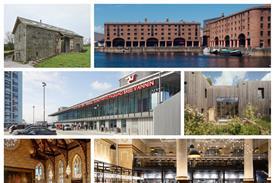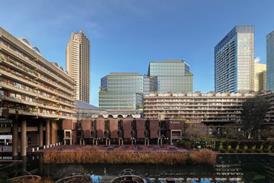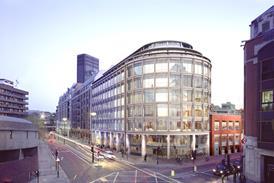Sadiq Khan blasts government’s ‘irresponsible lack of preparation’ for leaving the EU
Independent economic analysis commissioned by London mayor Sadiq Khan warns a “no deal” hard Brexit could lead to a loss of 43,000 construction jobs across the UK.
This would have a knock-on effect on projects and could potentially deepen the housing crisis, said Khan, who also claimed a hard Brexit could hit industry’s ability to fund infrastructure schemes.
The study, Preparing for Brexit, which was undertaken by Cambridge Econometrics for Khan, modelled five different scenarios for the UK’s future relationship with the EU and how they would impact both the London and UK economies, as well as the outcome for several key industries including construction.
In a worst-case scenario, the capital’s construction industry would lose 5,000 jobs should a “no deal” hard Brexit be the outcome, with the capital’s construction sector output potentially falling by £1.2bn up to 2030.
Statistics from the Greater London Authority included in the report revelealed the skills shortage would likely worsen with almost 13% of construction workers across the UK born abroad, rising to 50% in London and the south east.
A quarter of those employed by the industry in London were born in the European Economic Area, which includes all 28 EU members as well as Iceland, Norway and Liechtenstein. Many architects’ practices have a large percentage of EU staff, with Amanda Levete threatening to open a Paris office partly in response to the “massive threat” Brexit poses to her practice.
Industry’s ability to bankroll and complete major infrastructure projects post-Brexit was also drawn into question
The report said: “It is likely the skills shortage could get worse, if the new agreements don’t allow for free movement of people. This could result in even higher pressures on wages, as labour supply contracts, causing construction firms to face considerably higher project costs.
“Additionally, this could reduce firms’ capacity to deliver new houses to meet the government’s housing targets, and further deepen the housing crisis, especially in London. The labour market issues the construction sector faces are reflected as an expected fall in productivity in the macro modelling assumptions.”
The analysis also revealed productivity in the industry, which is already underperforming, could fall by between 0.07% and 0.21% depending on the Brexit scenario.
Industry’s ability to bankroll and complete major infrastructure projects post-Brexit was also drawn into question.
The report said: “At the moment, the UK construction sector benefits from having access to the European Investment Bank and the European Investment Fund, which have invested £6.2bn in major infrastructure projects, and lent almost £590m to SMEs in 2015. A loss of these financial aids could significantly impact the ability of firms to deliver big infrastructure projects such as High Speed 2 and reduce development opportunities for start-ups.
“Additionally, foreign investment could dampen due to uncertainty over the UK economy following Brexit, and as investors delay making decisions on the future of projects. This loss of potential future investment has been reflected as a fall of up to £754m in investment in the sector by 2030, depending on the scenario and the severity of Brexit.”
With the future trade relationship between the UK and EU due to be agreed on by October, Khan warned time was running out to strike a deal which will protect the industry.
He said: “This new analysis shows why the government should now change its approach and negotiate a deal that enables us to remain in both the Single Market and the Customs Union.”
“It’s astonishing that the government has failed to do any proper impact assessments on what Brexit could mean for our economy. Their complete lack of preparation is irresponsible leading to fears that they are putting party politics ahead of the national interest.”
Arcadis market intelligence lead Will Waller said the report added another voice to the industry’s concerns about the impacts on investment levels and labour supply.
He said: “One thing the report doesn’t mention is more practical implications of some of the scenarios. The industry needs to be contingency planning now for disruption at borders for example, which would have a knock-on effect to the supply and delivery of vital materials, which without adequate planning, could cause delays on site.”
Khan commissioned the report in mid-December after criticising prime minister Theresa May and David Davis, the Brexit secretary, for their “chaotic” approach to Brexit, which he warned was “putting jobs and growth at risk” in the capital.
Five scenarios modelled by Cambridge Econometrics
- Scenario 1 - A “close to status quo” scenario where the UK remains part of both of the single market and customs union.
- Scenario 2 - A scenario where the UK remains part of the single market but not the customs union.
- Scenario 3 - A scenario where the UK remains part of the customs union but not the single market.
- Scenario 4 - A hard Brexit scenario in which trade between the UK and the EU falls under World Trade Organisation (WTO) rules with a two-year transition period from March 2019.
- Scenario 5 - The same hard Brexit scenario but without a two-year transition period.













1 Readers' comment